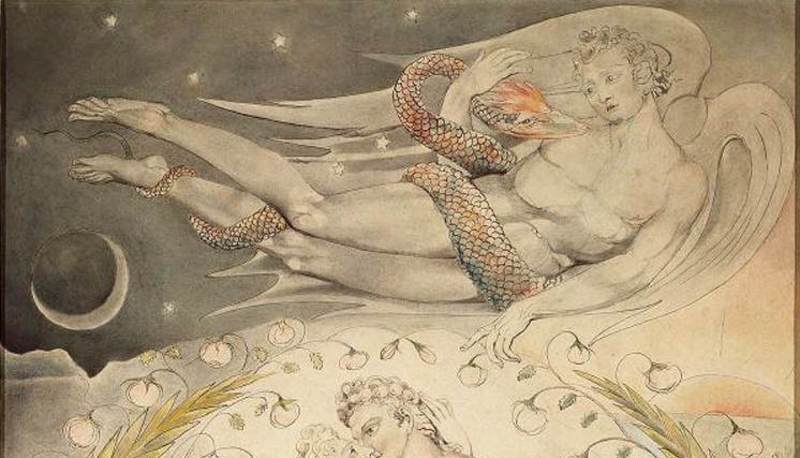Concetti Chiave
- William Blake's works often reflect a mystical quality, influenced by his reported visions of angels and spirits, resulting in complex symbolism.
- He believed deeply in imagination as a divine gift, considering poets as prophets who draw inspiration from nature, which he viewed as God-given.
- His poetry collections, "Songs of Innocence" and "Songs of Experience," explore themes of innocence and experience, with contrasting tones and symbolism.
- "The Lamb" from "Songs of Innocence" symbolizes Christ and embodies qualities of humility, joy, and tenderness, with Blake identifying with divine inspiration.
- "The Tiger" from "Songs of Experience" represents the duality of creation's energy, capable of both good and evil, reflecting the complexity of human nature.
Blake's artistic sensibility
Blake wrote “little lyrics” about nature, animals and children and showed a sensibility to suffering and injustice.
He was a painter but also a poet and he become one of the most original English poets because of the strange mystical nature of much of his verses.
He declared that since his childhood he had been visited by angels and other spirits and in his works he tried to interpret these visions in images rich in symbolism that is not easy to understand.
He also said that an archangel dected to him a work.
He believed in the power of imagination.
Songs of innocence and experience
He wrote two collection of poems:
- SONGS OF INNOCENCE: Love for nature, beauty, children and innocents creatures, poem gentle and optimistic.
- SONGS OF EXPERIENCE: Poems strange, more violent in tone and richer in symbolism.
-“THE LAMB” is the symbol Christ.
Lamb is equal to humble, joy, tenderness.
Blake identify himself in God. 
-“NURSE’S SONG“ (1)- during the day_ childhood.
When the nurse take care of the child she remember when she was a child. She remember her innocence, her joy, her happiness.
-“THE TIGER” represent the evil part of man, but also the energy
(-act of creation-): the man can have energy to create but also
energy to destroy.
Man_ good part: childhood
_evil part: when you grow up you can become an evil man
-“NURSE’S SONG“ (2)- during the night_ when everything is finished. He consider imagination in a different way: experience.
This poem represents the night, the final act of creation, the end of the day, of the life, of the wishes.
Voices are low (“silence”, “whisper”).
Imagination and poetic inspiration
Poetry can’t exist without imagination.
Imagination is a sort of gift by God. Nature came from God.
The poet get inspiration from nature so inspiration came from God.
The poet is considered a prophet who had to teach to the other man his wit.
Domande da interrogazione
- Quali sono le tematiche principali delle opere di William Blake?
- Come si differenziano le "Songs of Innocence" dalle "Songs of Experience"?
- Qual è il ruolo dell'immaginazione nella poesia di Blake?
Le opere di William Blake si concentrano su natura, animali, bambini, sofferenza e ingiustizia, con una forte sensibilità verso questi temi. Le sue poesie sono caratterizzate da una natura mistica e simbolica.
Le "Songs of Innocence" esprimono amore per la natura, bellezza, bambini e creature innocenti, con un tono gentile e ottimistico. Al contrario, le "Songs of Experience" sono più strane, violente nel tono e ricche di simbolismo.
L'immaginazione è considerata un dono di Dio e fondamentale per la poesia. Blake credeva che l'ispirazione provenisse dalla natura e quindi da Dio, e il poeta era visto come un profeta che doveva insegnare agli altri uomini la sua saggezza.






 Accedi a tutti gli appunti
Accedi a tutti gli appunti
 Tutor AI: studia meglio e in meno tempo
Tutor AI: studia meglio e in meno tempo